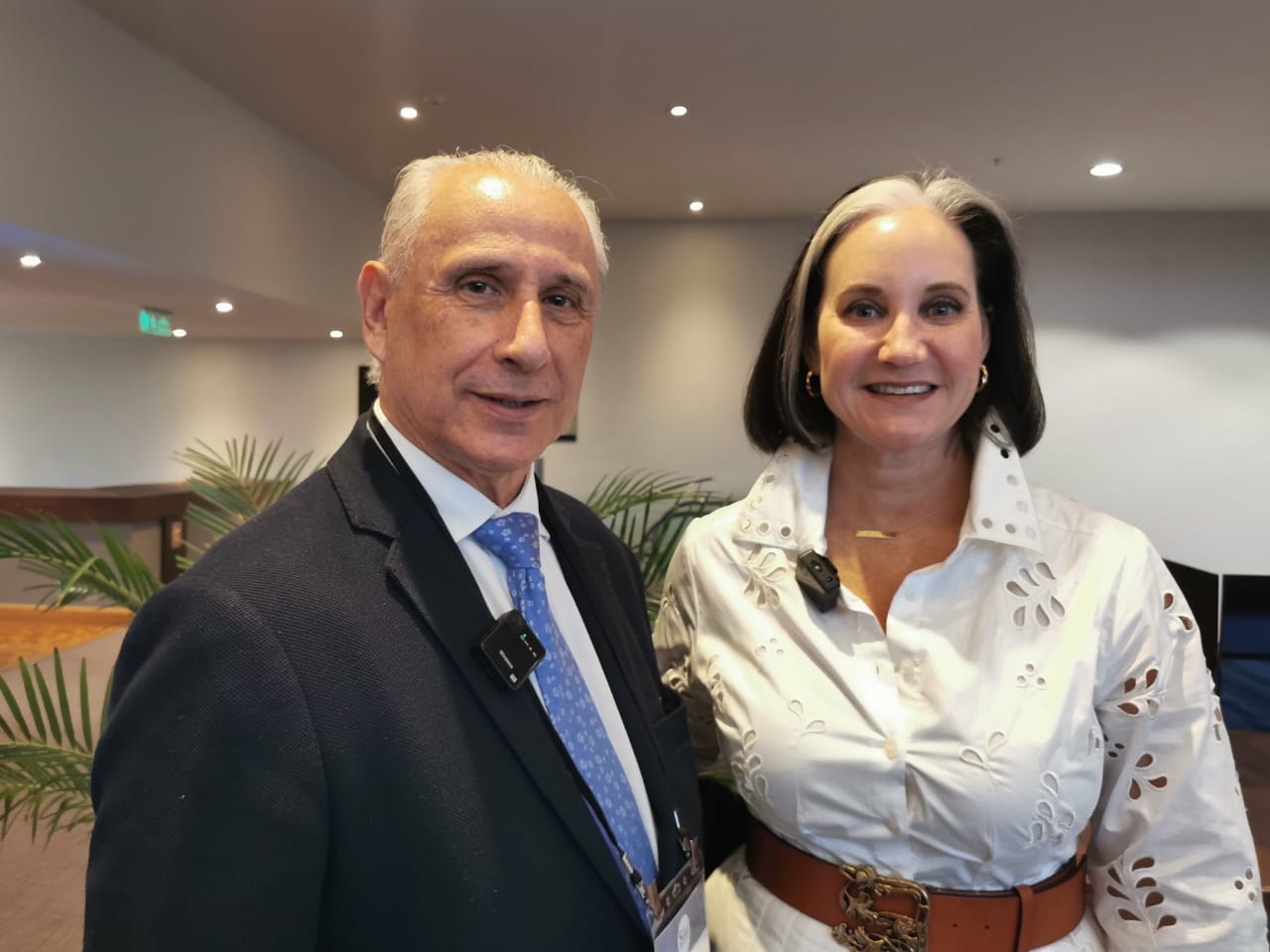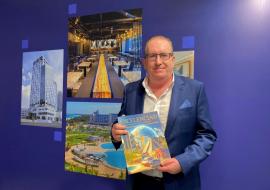Washington DC Is a City with Many Secrets

The 5th DMOs Meeting, ran smoothly in Mexico City over the past couple of days and Caribbean News Digital sat down with Melissa Riley, Senior Vice President of Destination Washington DC.
Washington DC is a MICE reference in the U.S. What is your secret?
Washington is a city of many secrets, but I think the truth of it is that it's not a secret. And that's why we're here celebrating all things, meetings and business events with other DMOs because we want to make sure that our industry as a whole is of the stature of the legitimacy as of the professional air that it deserves to be. Business events bring so much both socially and economically to our communities that we want to make sure that as the entire DMO community knows that and that we are helping each other elevate our presence within this space. And so the secret is public relations.
What’s the impact of the city in terms of congresses and incentives?
Well, I think one of the biggest impacts that we celebrate is, again, the economic impact that it brings in terms of tax generation and so forth. But one of the stories that we love to tell is the 82,000 people in the district that are employed as a result of hospitality and tourism. And I think what's so special about our industry is that it's not just people who have degrees in higher education. It's people from all socio-economic backgrounds who help contribute to creating an amazing experience for those people that are coming to visit our city, whether it's for leisure or for a meeting or convention. And so I think that's one of the best ways that we tell our stories.
In figures, what’s the monetary contribution that the MICE industry brings to the city?
Well, we try to look at the overall value of the business of what it means so it's not always just an economic number. Part of the initiative that many of our destinations are focusing on is more of a social impact. So, how do we create an opportunity for people who come into the city for a very short amount of time to actually find a mission that aligns with what they believe in? And how do they leave a positive social impact?
So, as I mentioned, yes, of course, we care about the economics, we care about the budget that we have that we have to promote and sell and market Washington DC. But even more important is the social footprint that business events can leave behind. So we put equal measure on both and I think there's a huge opportunity for us to look at continuing to grow the social legacy of business events, not just the economic legacy of it.
Apart from the economics, how many jobs are created on a regular basis in Washington DC associated with the MICE industry?
Well, I think that it is a difficult thing to measure social impact because really, the extent is so long. You might have something where you do a small Corporate Social Responsibility project, and you see an immediate impact in an underserved community. But I think truly the intent is to create a legacy. So that year after year after year, there's a continuous investment in the social landscape of a city like Washington, DC or any city across the country or the world.
And so it's really hard to quantify what that social impact is. It's what I call the humanization of our industry. It's how we really take, what we do from an economic standpoint that makes sure that socially we're responsible, that sustainability-wise we are responsible, that from that standpoint we're responsible to all of the members that create these kinds of micro communities within Washington DC or whatever the destination is.
You give tremendous significance to training and formation within the MICE industry. How much investment or efforts does Destination Washington DC pour into this kind of training?
We promote this more specifically to the meeting organizer community, to the association to the corporate to the incentive community because that's the audience that it pertains to. And so as we're pushing out these initiatives, it's really how after we're going after a specific bid, or if we're trying to uncover and prospect new opportunities for us, we really look at aligning and positioning that intellectual capital, the knowledge economy, to that specific audience.
And so, it isn't something that we necessarily, you know, push out for general audiences. Yes, we want to talk about how Washington DC has this competitive advantage and from from a macro standpoint, talk about how DC has a competitive advantage because there's so many market sectors that are thriving in our area, but really, it's how we specifically position it to a meeting organizer, that's the most important it's how do we understand what's important to the meeting organizer and how we can help them benefit their show, and then do a highly customized promotion that way.
This has been a long term investment for us not just in financial capital, but really in investing in the research and the understanding, and how do the salespeople actually push this initiative out? How do they understand how it benefits their customer? So, it's really a long term investment. And as the marketplace continues to evolve, and all of our cities continue to evolve in a post pandemic world, we need to understand how to continue to stay relevant. And so what are the market sectors that are emerging that might not have been relevant 10 or15 years ago that are now and how do we continue to evolve and invest in those so yes, there's a financial investment, but it's really an investment in making sure that everybody is knowledgeable about how to sell and market it. Understand the value to the actual subject matter experts and educate all of them.
How has the hybrid format impacted the MICE industry across the board?
Going hybrid was a necessity for a very long time. What we have found, especially with some of our large congresses that have come to the city, is that most people are transitioning away from hybrid. But what they will do is repurpose the content from the actual event and make it a virtual component for a later date.
Because basically, when you're doing hybrid, it takes an incredible amount of resources to be able to execute because you're basically running two conferences simultaneously, one that's online and one that's live and it's very hard, especially in the global landscape to do both considering time zones, considering where people are in the world. And so we see the hybrid slowly going away.
Virtual is still relevant and people are still packaging the content. They're making that available for their attendee base. But we don't see it happening simultaneously as much anymore, if ever any more. And so the return to face to face has come back stronger than it ever has before. Depending on specific market segments of meetings and business events, we're seeing some are breaking their pre pandemic numbers. So, it's been incredible to see the rebound of our industry in a post pandemic world.














